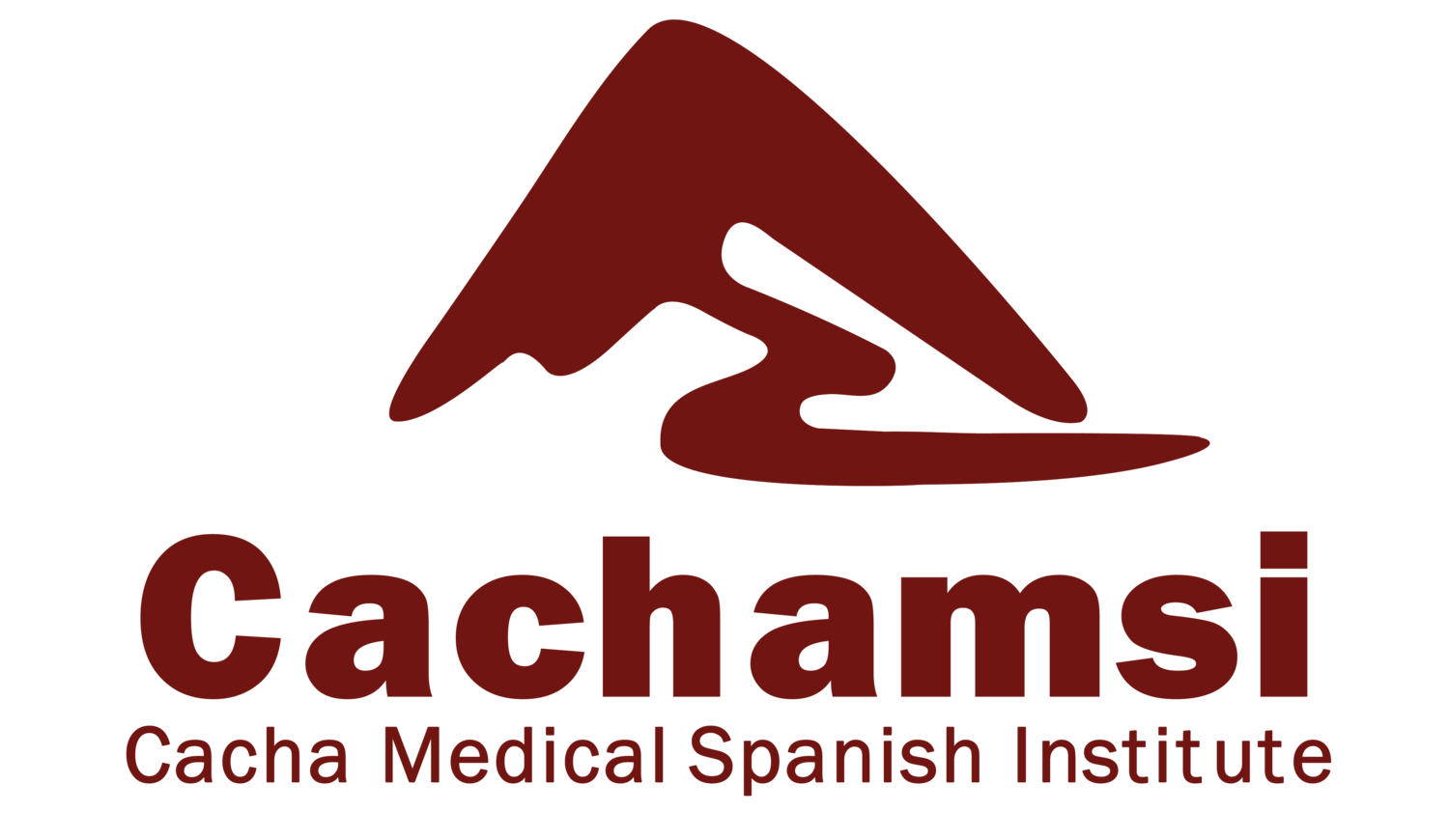CCLA-Medical Spanish Certification
CCLA-Medical Spanish Certification
Cachamsi and ALTA Language Testing have partnered to provide an exclusive Medical Spanish certification path for our Intermediate, Advanced, and Native Spanish-Speaking Students.
This exam may only be taken by current/past Cachamsi Students who are seeking for legitimate certification in Medical Spanish as a professional development opportunity.
The Clinician Cultural and Linguistic Assessment (CCLA) is a tool developed by Kaiser Permanente and administered by ALTA. The purpose of the Kaiser Permanente Clinician Cultural and Linguistic Assessment (CCLA) is to determine the level of target language proficiency of physicians who identify themselves as bilingual. Specifically, the CCLA is designed to assess physicians’ ability to communicate directly with target language-speaking patients in a primary care medical setting in a linguistically and culturally sensitive manner without the use of an interpreter.
The CCLA is administered via the telephone and is available twenty-four hours per day, seven days per week, with results available within forty-eight business hours. Once your organization is registered, you will be provided access to ALTA’s site for generating candidate codes. One code must be generated for each candidate taking the exam. The code is unique to the candidate it is generated for, and is good for one use only. Candidates simply dial the number provided, enter their access code, and follow the system prompts. To learn how we can help you with Language Testing, please fill out our Contact Form.
CCLA Exam Structure
The exam is divided into three sections:
Introduction and General Instructions
The first section is an introduction and warm-up exercise intended to help put the candidates at ease with the system and to allow them to practice their target language briefly prior to the formal portion of the exam.Sociocultural Competence
This section of the exam contains and assesses general medical discourse, terminology, and concepts. In addition, this section is particularly designed to elicit language samples that reflect a candidate’s sociocultural competence. This tests the physician’s ability to change registers to suit the age, gender, and educational background of the patient. It also tests the physician’s ability to understand the culturally appropriate language required in certain medical settings. Section II is comprised of four (4) pre-recorded scenarios, each of which represents a different medical domain and varied sociocultural tasks.Symptoms, Diagnoses, and Treatment
This section is designed to elicit language samples that represent the range of doctor/patient interaction from initial presentation of symptoms through diagnosis and treatment. It is divided into two pre-recorded scenarios, each addressing a different medical domain.
How the CCLA is Scored
The CCLA exam is scored using objective scoring units and a subjective assessment protocol. The objective units represent significant words, phrases, and clauses that are found in and critical to doctor/patient communication. These include specialized medical terminology, register variation, rhetorical features, general vocabulary, grammatical structures, and appropriate sociocultural discourse. Candidates are also assessed in the five subjective scoring categories of “Fluency,” “Pronunciation,” “Customer Service,” and “Cultural Proficiency.”
Scoring is assigned on a four-point scale for the subjective scoring categories:
Subjective Scoring Scale
Superior Proficiency
Proficient
Approaching Proficiency
Novice Proficiency
A prescribed percentage of scoring units must be rendered correctly in each section of the exam. Only objective scoring units directly contribute to a candidate’s passing or failing the exam. The subjective assessment serves to give candidates recommendations for improvement.

